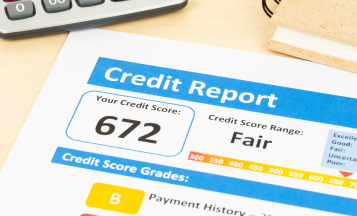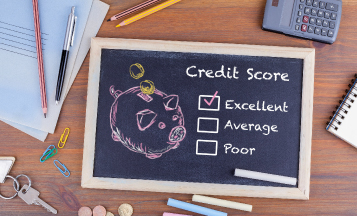How Your Credit Score Impacts Your Financial Future
Many people do not know about the credit scoring system— much less their credit score—until they attempt to buy a home, take out a loan to start a business or make a major purchase.

Credit Score 101
A credit score is usually a three-digit number lenders use to help them decide whether you get a mortgage, a credit card or some other line of credit, and the interest rate you are charged for this credit. The score is a picture of you as a credit risk to the lender at the time of your application.
Everyone has his or her own credit score. If you're married, both you and your spouse will have an individual score, and if you are co-signers on a loan, both scores will be scrutinized. The riskier you appear to the lender, the less likely you will be to get credit or, if you are approved, the more that credit will cost you. In other words, you will pay more to borrow money.
Scores range from approximately 300 to 850. When it comes to locking in an interest rate, the higher your score, the better the terms of credit you are likely to receive.
How Do You Get Your Credit Score?
To answer this question, you can request your credit score (for which there is a charge) or free credit report from (877) 322-8228 or www.annualcreditreport.com.
The most well-known credit scoring system was developed by Fair Isaac Corporation and is called the FICO® score.
The three major credit bureaus—Equifax®, TransUnion® and Experian®—use the FICO scoring model for their proprietary systems.
Since each scoring system uses a slightly different statistical model, your score from each of the three will not be the same. This is because lenders and other businesses report information to the credit reporting agencies in different ways, and the agencies may present that information through their proprietary systems differently.
Because different lenders have different criteria for making a loan, where you stand depends on which credit bureau your lender turns to for credit scores.

How Your Score Affects You
Suppose you want to borrow $200,000 in the form of a fixed rate thirty-year mortgage. If your credit score is in the highest category, 760-850, a lender might charge you 3.307 percent interest for the loan. This means a monthly payment of $877. If, however, your credit score is in a lower range, 620-639 for example, lenders might charge you 4.869 percent that would result in a $1,061 monthly payment.
Although quite respectable, the lower credit score would cost you $184 a month more for your mortgage. Over the life of the loan, you would be paying $66,343 more than if you had the best credit score. Think about what you could do with that extra
$184 per month.
How is Your Credit Score Determined
So, how do credit bureaus determine your credit score? Fair Isaac has developed a unique scoring system for each of the three credit bureaus, taking the following five components into account:
Component
- Payment history 35%
- How much you owe 30%
- Length of credit history 15%
- Type of credit 10%
- New credit(inquiries) 10%
If you are not sure about whether you can obtain a loan and/or what rate who may qualify at, reach out to Nymeo. We can guide you in the best direction.
Category: Credit & Budgeting



